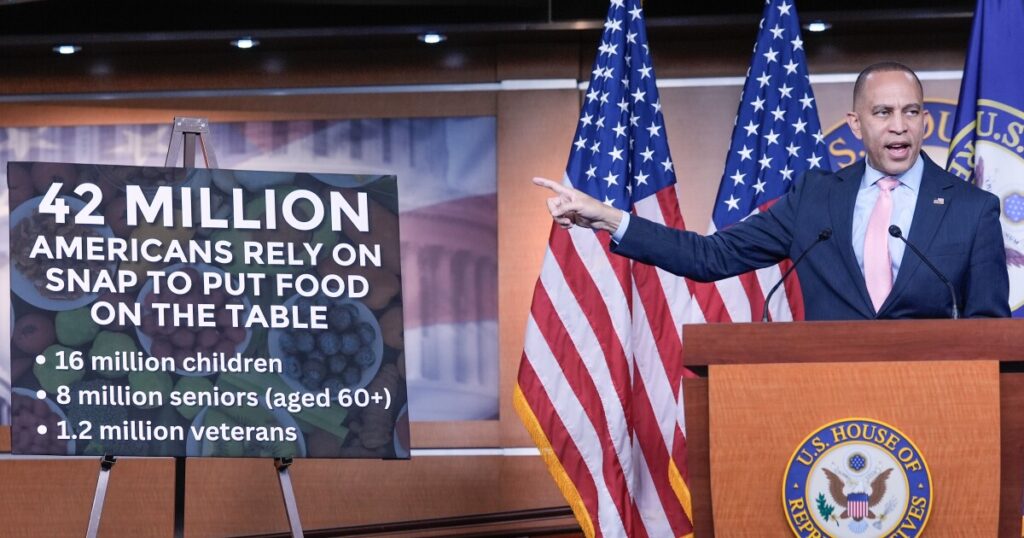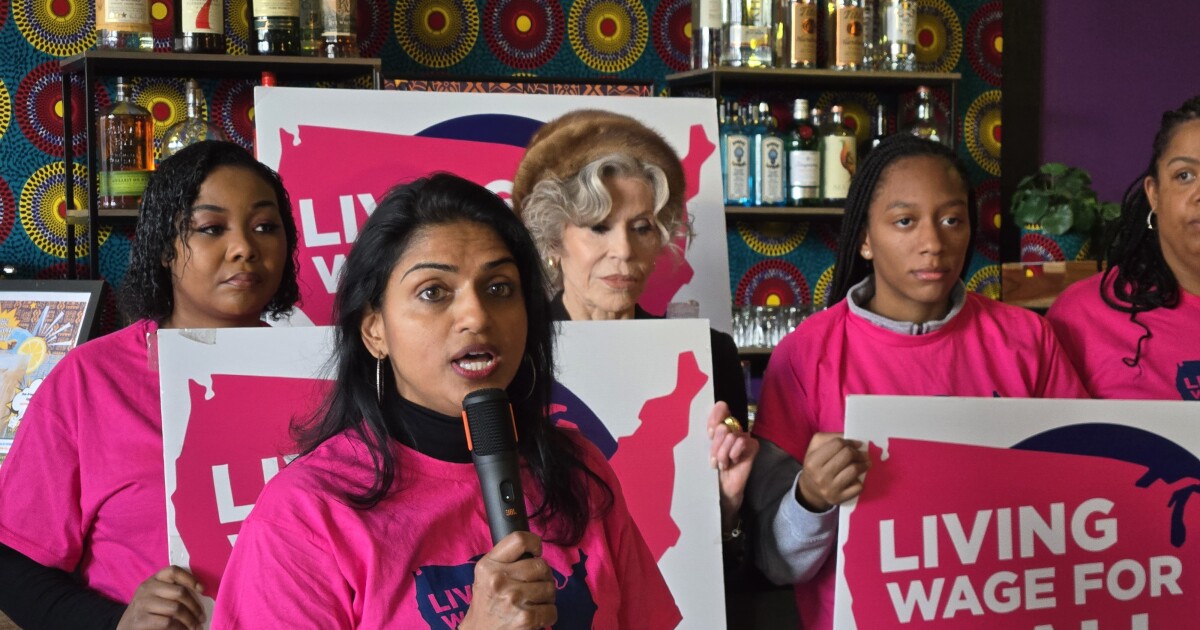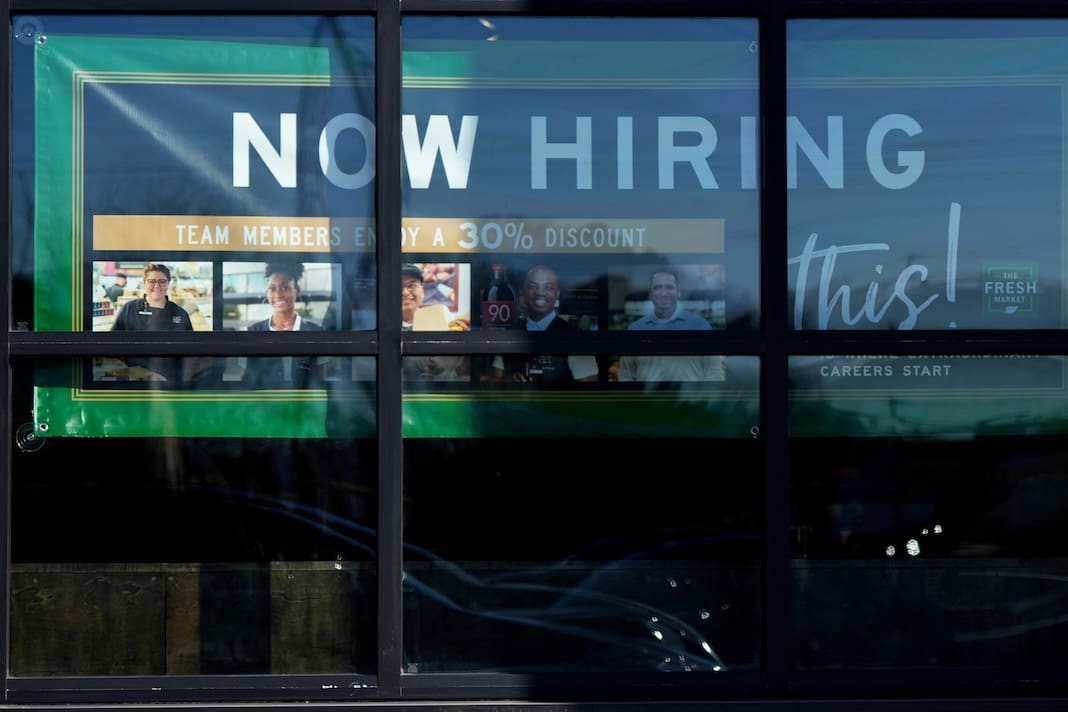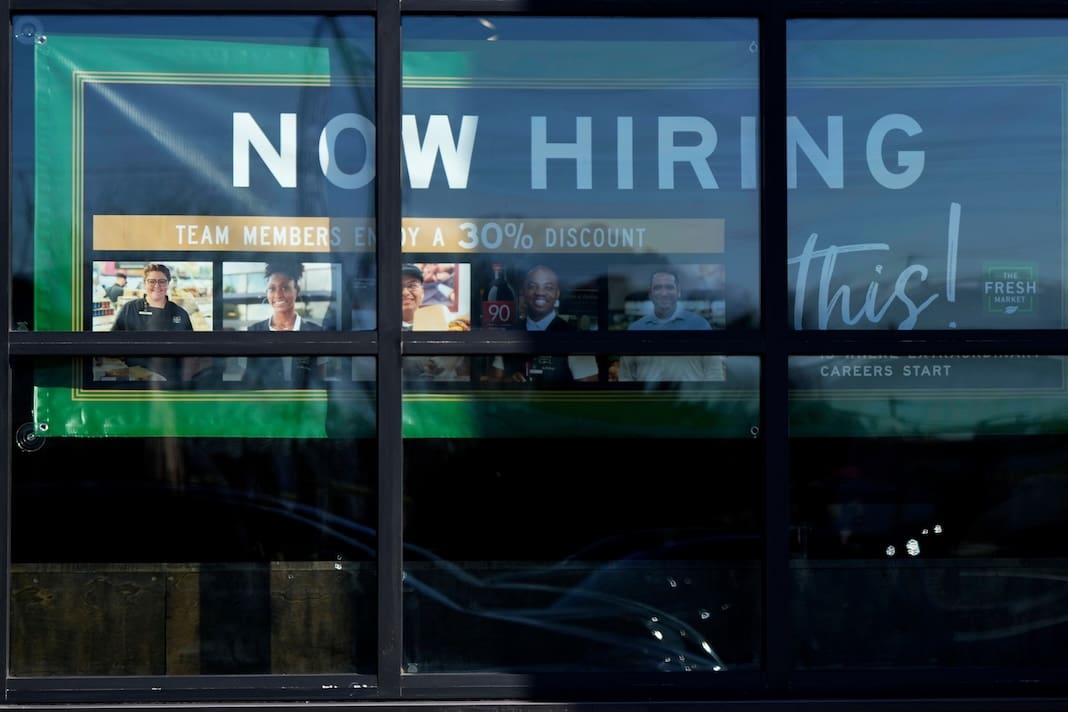WASHINGTON — President Donald Trump has urged the Senate to eliminate the filibuster, aiming to enable the Republican majority to bypass the Democrats and reopen the federal government.
“THE CHOICE IS CLEAR — INITIATE THE ‘NUCLEAR OPTION,’ GET RID OF THE FILIBUSTER,” Trump stated on Thursday night on Truth Social.
The filibuster, a traditional Senate tactic, is used to prolong debate or block votes on legislation. Overcoming a filibuster necessitates 60 votes in the full Senate, which has been a barrier for Democrats against the 53-seat Republican majority, contributing to the government shutdown that began with the new fiscal year on October 1.
Trump’s suggestion to discard the filibuster could transform Senate operations and legislative negotiations. The president mentioned that he extensively considered this decision during his return flight from Asia on Thursday.
During the past week, Trump engaged with leaders from Malaysia, Japan, and South Korea, concluding his trip with a meeting with Chinese leader Xi Jinping.
The president touted the trip as successful, citing a trade truce with China and forthcoming foreign investments in American industries. However, he noted that a recurrent question among foreign leaders was why “powerful Republicans allow” Democrats to initiate a government shutdown.
As Trump calls for an end to the filibuster, certain senators and House Speaker Mike Johnson are also pushing for a resolution to the government shutdown. Yet, it remains uncertain if lawmakers will align with Trump’s proposal or pursue negotiations with Democrats.
Across the country, the effects of the government closure are becoming evident: in Alaska, residents are preparing for winter by stockpiling moose, caribou, and fish, while waiting for SNAP food aid that might soon be unavailable. In Maine, people are filling their heating oil tanks but are left waiting for undelivered federal subsidies.
Holiday travel is being affected with flight delays, employees are missing paychecks, and Americans are facing rising health care insurance costs, central to the Capitol Hill deadlock.
“People are stressing,” remarked Sen. Lisa Murkowski of Alaska, as food scarcity grows in her state.
“We are well past time to have this behind us,” she added.
Despite ongoing quiet discussions, particularly among bipartisan senators, the shutdown is not anticipated to end before Saturday’s deadline, when the absence of federal SNAP funds could starkly reveal the deep food insecurity faced by one in eight Americans.
Military Funding Prioritized Over Food Aid
The White House has reallocated funds to ensure military personnel are paid, yet has not done the same for food aid. Notably, Trump’s “big, beautiful bill” enacted this summer resulted in the largest reduction to the Supplemental Nutrition Assistance Program (SNAP), potentially displacing around 2.4 million program beneficiaries.
Jacquelyn Martin / AP
/
AP
Meanwhile, many Americans purchasing health insurance through federal and state marketplaces are facing sticker shock as premium prices rise. Open enrollment begins Saturday.
“We are holding food over the heads of poor people so that we can take away their health care,” said Rev. Ryan Stoess during a prayer session with religious leaders at the U.S. Capitol.
“God help us,” he said, “when the cruelty is the point.”
Shutdown Likely to Extend
The House has been closed under Johnson for the past month, and senators are preparing to leave for the long weekend. Trump returns late Thursday after his Asian tour.
This suggests that the 30-day shutdown may extend into another week if the filibuster stays intact, potentially making it the longest shutdown in history, surpassing the 35-day lapse in 2019 over Trump’s U.S.-Mexico border wall demands.
The next pivotal moment is expected post-Tuesday’s off-year elections, including the New York City mayoral race and gubernatorial elections in Virginia and New Jersey. Following these, Democrats and Republicans might reassess their political standings and negotiate a deal.
“I hope that it frees people up to move forward with opening the government,” said Senate Majority Leader John Thune, R-S.D.
Republican SNAP Cuts
Republicans, holding majority control in Congress, are in an unusual position defending the furloughed workers and closed programs they have previously tried to reduce. This includes nearly $1 trillion in cuts in Trump’s major tax and spending bill.
Medicaid and SNAP faced significant reductions, partly due to new work requirements. For SNAP recipients, many already required to work, the new stipulations extend to older adults up to age 64 and parents of older school-age children.
House Democratic Leader Hakeem Jeffries criticized Republicans for using food aid as a political tactic.
“We are trying to lift up the quality of life for the American people,” Jeffries of New York stated regarding his party’s efforts.
“The American people understand that there’s a Republican health care crisis,” he said. “The American people understand Republicans enacted the largest cut to nutritional assistance in American history when they cut $186 billion from their one, big, ugly bill.”
During summer debates over Trump’s bill, Johnson and other Republicans condemned what they perceived as abuse of government benefits by some Americans.
The speaker referred to able-bodied individuals playing video games while receiving Medicaid benefits and insisted that the new work requirements would eliminate “waste, fraud and abuse.”
“What we’re talking about, again, is able-bodied workers, many of whom are refusing to work because they’re gaming the system,” Johnson stated in spring on CBS’ “Face the Nation.”
“And when we make them work, it’ll be better for everybody, a win-win-win for all,” he concluded.
Currently, there is no immediate solution for the new health care prices, set to make insurance unaffordable for many Americans when federal subsidies helping offset these costs expire at year-end.
Democrats are pushing for negotiations with Trump and Republicans to maintain these subsidies. Republicans suggest the issue can be addressed once the government reopens.
Copyright 2025 NPR
—
Read More Michigan News










